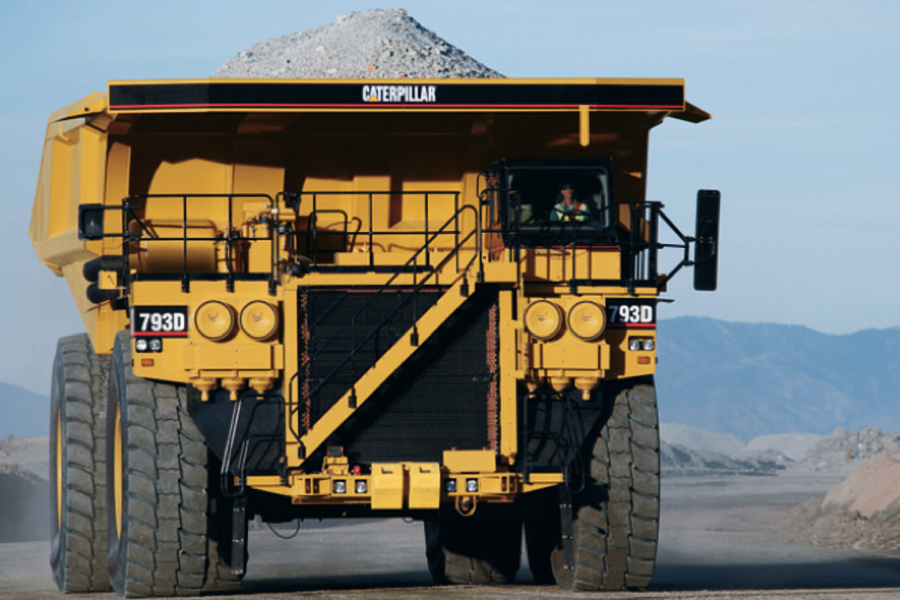Caterpillar, steelmakers gain as Biden deal ups demand view

Caterpillar Inc. and steelmakers surged as President Joe Biden’s bipartisan $579 billion infrastructure deal buoyed the outlook for U.S. demand.
Heavy-equipment maker Caterpillar gained 2.6% after jumping as much as 3.8% in New York on Thursday, the most in three months. U.S. Steel Corp. climbed more than 3% and Nucor Corp., the largest U.S. steel producer, rose 2% amid a similar increase by the Bloomberg Americas Iron/Steel Index. Farm-equipment maker Deere & Co. and aluminum company Alcoa Corp. also advanced.
Metals and machinery makers have risen this year, partly on bets that government spending to rebuild roads, bridges and tunnels will bolster demand. The agreement came after months of bipartisan negotiations.

“We’ve struck a deal,” Biden said in a tweet. “A group of senators – five Democrats and five Republicans – has come together and forged an infrastructure agreement that will create millions of American jobs.”
A surge in spending on roads, transit systems and waterways offers an influx of fresh demand for makers of construction materials and infrastructure engineering and design companies. Construction aggregates supplier Vulcan Materials Co. rose 3.3%, the most in nearly two months, while Jacobs Engineering Group Inc. also gained.
The Dallas-based infrastructure design and engineering firm has a presence in several of the key areas to see funding under Biden’s proposal, including water, transportation and resiliency.
“Our clients have been asking the federal government for these types of investments for years,” Chief Executive Officer Steve Demetriou said in an emailed statement.
“With historic funding levels, combined with five years of funding certainty for all of these markets, Jacobs is poised to offer innovative solutions to the nation’s biggest infrastructure challenges.”
While Biden’s announcement was cheered by investors on Thursday, the plan could still be threatened by tight supplies of some materials, including steel and cement. The companies the US will rely on to pave roads, build bridges, lay pipes and assemble trains aren’t yet planning to meet those needs, according to economists and industry insiders.
Industrial manufacturers are already at full volume to support the economic recovery, and the influx of spending will add to supply-chain pressures, said Deane Dray, an analyst at RBC Capital Markets. Even so, companies should be able to manage those incremental strains, he said, in part because planning for roads, bridges and other infrastructure projects has already taken supplies into consideration.
“It’s certainly going to add to the overall volume of demand and pricing pressures and so forth, but at the end of the day I would consider that to be a high-quality problem,” Dray said.
(By Joe Deaux and Ryan Beene)
{{ commodity.name }}
{{ post.title }}
{{ post.date }}




Comments